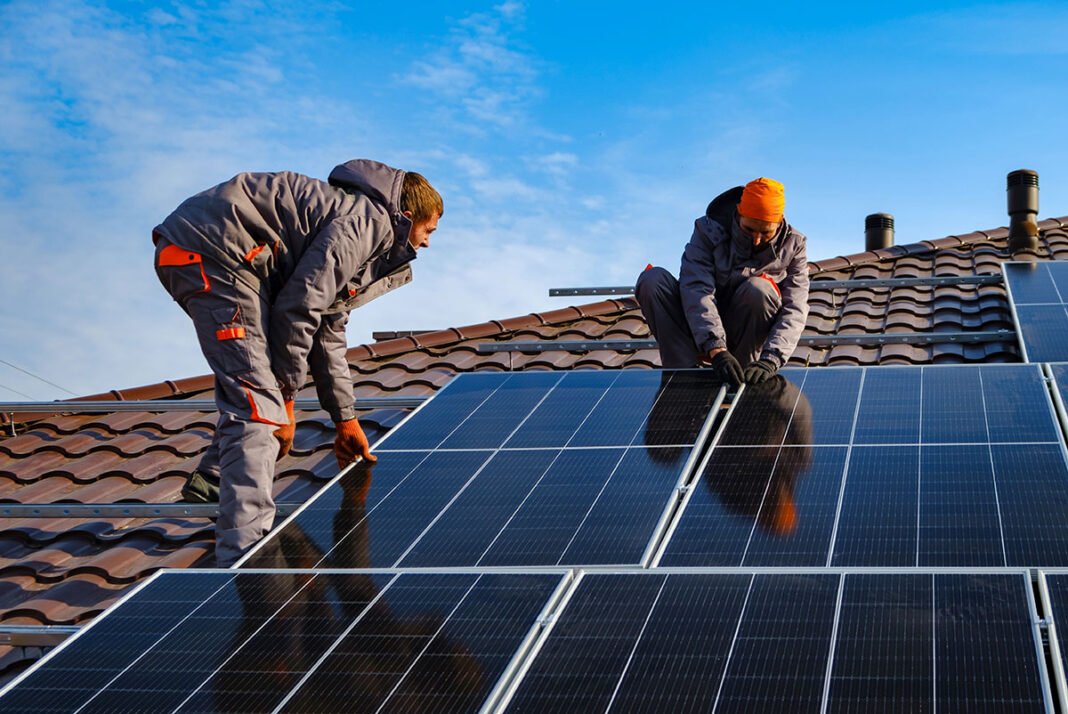Choosing the best solar inverter for your residential solar system is crucial for optimizing your solar energy production and ensuring long-term efficiency. The inverter is the heart of your solar system, converting the direct current (DC) generated by solar panels into alternating current (AC) used by household appliances. This article will guide you through the key factors to consider when selecting a solar inverter, helping you make an informed decision.
Understanding Solar Inverters
What is a Solar Inverter?
A solar inverter is an essential component of a solar energy system. It converts the DC electricity produced by solar panels into AC electricity, which can be used to power home appliances and feed excess energy back to the grid. Without an inverter, the electricity generated by your solar panels would be unusable in a typical home.
Types of Solar Inverters
There are several types of solar inverters available, each with its advantages and disadvantages. Understanding these types will help you choose the best inverter for your needs.
String Inverters
String inverters are the most common type of solar inverter. They connect a series of solar panels (a “string”) to a single inverter. While they are cost-effective and simple to install, their efficiency can be impacted by shading or panel mismatches, as all panels in a string must perform at the same level.
Microinverters
Microinverters are installed on each solar panel, allowing each panel to operate independently. This setup maximizes efficiency, particularly in shaded or complex roof situations. However, microinverters are more expensive and can be more complex to install than string inverters.
Power Optimizers
Power optimizers work with string inverters to enhance their performance. They are installed on each panel, similar to microinverters, but instead of converting DC to AC at the panel level, they optimize the DC electricity before sending it to a central inverter. This can improve system efficiency while maintaining some of the cost benefits of string inverters.
Hybrid Inverters
Hybrid inverters, also known as battery-based inverters, are designed for systems with energy storage. They can manage both solar energy generation and battery storage, providing greater flexibility and energy independence. These inverters are ideal for homeowners looking to add battery storage to their solar systems.
Key Factors to Consider When Choosing a Solar Inverter
Efficiency
Inverter efficiency is a critical factor in maximizing your solar system’s energy production. Higher efficiency means more of the electricity generated by your solar panels is converted into usable AC power. Look for inverters with high efficiency ratings, typically above 95%.
System Compatibility
Ensure the inverter you choose is compatible with your solar panels and overall system design. This includes matching the inverter’s voltage and power capacity to your solar array. Incompatible systems can lead to reduced performance and potential damage to your equipment.
Monitoring Capabilities
Modern solar inverters often come with monitoring capabilities, allowing you to track your system’s performance in real-time. This feature can help you identify issues early and ensure your system is operating at peak efficiency. Consider inverters with built-in monitoring or those compatible with third-party monitoring systems.
Warranty and Reliability
The warranty and reliability of a solar inverter are important considerations. Look for inverters with long warranty periods, typically 10-25 years, as this indicates the manufacturer’s confidence in their product. Research the brand’s reputation for reliability and customer support to ensure you choose a dependable inverter.
Cost
While cost should not be the sole deciding factor, it is an important consideration. Balance the initial investment with the expected long-term benefits and savings. Higher efficiency and more reliable inverters may have a higher upfront cost but can offer greater savings over the system’s lifetime.
Installation and Maintenance
Consider the ease of installation and maintenance when choosing a solar inverter. Some inverters may require professional installation, while others might be more DIY-friendly. Additionally, assess the maintenance requirements and whether the manufacturer offers support and services in your area.
Personal Experience: Choosing the Right Inverter
When I installed my residential solar system, I opted for microinverters due to my complex roof design and partial shading from nearby trees. While the initial cost was higher than a string inverter setup, the improved efficiency and performance made it a worthwhile investment. The real-time monitoring capabilities also gave me peace of mind, knowing I could track the system’s performance and quickly address any issues.
Future Trends in Solar Inverter Technology
Advancements in Efficiency
Ongoing advancements in solar inverter technology continue to push efficiency boundaries. Newer models are designed to minimize energy losses and improve conversion rates, making solar systems more productive and cost-effective.
Enhanced Smart Inverters
Smart inverters with advanced features like grid support, energy storage integration, and enhanced monitoring are becoming increasingly popular. These inverters can communicate with the grid to provide grid services, such as frequency regulation, and are essential for integrating solar systems with battery storage.
Improved Durability and Longevity
Manufacturers are focusing on improving the durability and longevity of solar inverters. Enhanced materials, better cooling mechanisms, and more robust designs contribute to longer-lasting inverters that can withstand harsh environmental conditions.
Conclusion
Choosing the best solar inverter for your residential solar system involves considering various factors, including efficiency, system compatibility, monitoring capabilities, warranty, cost, and ease of installation and maintenance. By understanding the different types of inverters and their features, you can make an informed decision that maximizes your solar energy production and ensures long-term performance. As technology continues to advance, the future of solar inverters looks promising, offering even greater efficiency and smart integration options.


